5 Most Questionable National Award Wins in Indian Cinema
It was quite a WTF moment when the National Award for Best Actor was announced on 24th Aug 2023. Allu Arjun bagged the title for the year for his performance in Pushpa-The Rise. The award announcement created a lot of buzz and discussion as to did he really deserved this award. Mind you, he emerged winner surpassing Vicky Kaushal in Sardar Udham, Joju George in Nayattu, and many other remarkable performances.
While the win makes Allu Arjun the first Telugu actor to ever win a National Award, people in general (including me) are not happy about this win. Surprisingly this is not the first time something like this is happening. There have been many National award wins over the years that felt undeserving and raised eyebrows. Let’s have a look at some of those:
1. Saif Ali Khan for Hum Tum: When Charisma Overshadowed Substance

In 2004, Saif Ali Khan’s win for Hum Tum left the audience both surprised and puzzled. While I do appreciate Saif Ali Khan for taking up challenging roles and coming out of his comfort zone, his performance in Hum Tum was mediocre at best. I can’t think of one single thing that can be considered “National Award worthy” about his performance.
The same year witnessed Pankaj Kapoor’s intense portrayal in Maqbool, a performance that resonated with layers of Shakespearean intrigue. Kapoor’s craft stood as a testament to the transformative power of acting, making the award for “Hum Tum” a choice that continues to spark conversation. Shah Rukh’s performance in Swades was another overlooked performance for the award.
Rumors say that Saif’s mother Sharmila Tagore, who was heading the censor board at that time, might have influenced the decision to give Saif the award for Best Actor.
Also Read: Indian Movies Inspired from Shakespeare Novels
2. Akshay Kumar for Rustom: Conviction vs. Controversy
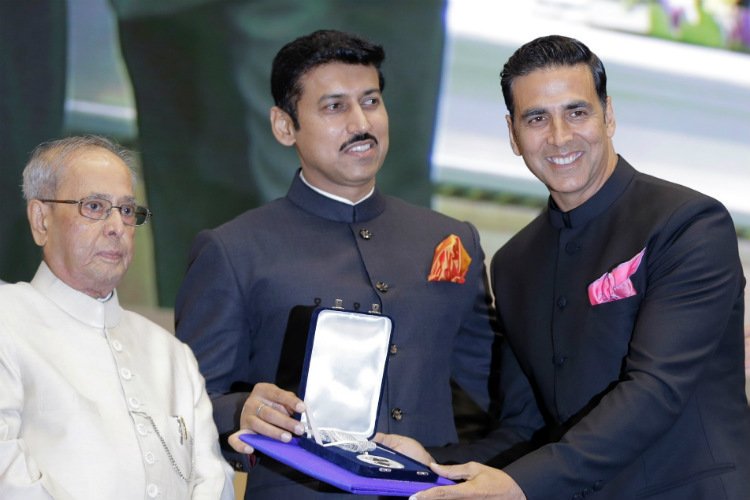
In 2016, Akshay Kumar’s win for Rustom raised more than a few eyebrows due to the film’s proximity to controversies. While Kumar’s dedication and effort were commendable, some critics questioned whether the portrayal truly held the gravitas that one associates with a National Award.
The nuanced brilliance of Manoj Bajpayee’s performance in Aligarh, a role that delved into the heart of human vulnerability, seemed more aligned with the award’s historical penchant for celebrating profound storytelling.
Akshay Kumar’s victory sparked discussions about the award’s connection with societal relevance and the extent to which an actor’s conviction translates to excellence. It is believed that the involvement of director Priyadarshan in the jury might have resulted in Akshay being declared as the winner.
3. Kangana Ranaut for Fashion: A Glamorous Upset
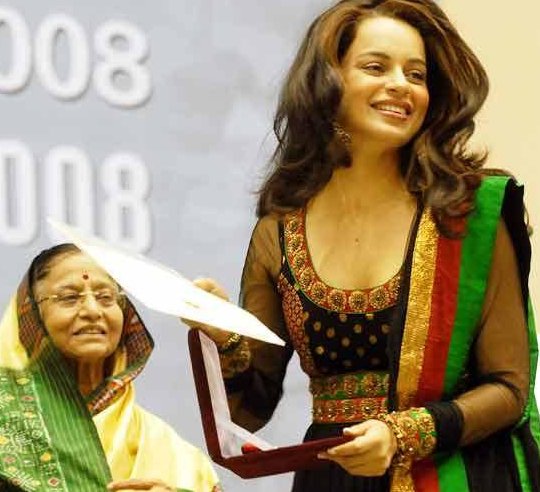
2008 saw Kangana Ranaut being honored with the National Award for Best Supporting Actress for her performance in Fashion. While Ranaut’s journey from innocence to stardom was commendable, the win elicited divided opinions. Critics argued that other performances that year, such as Tabu’s understated yet haunting portrayal in Cheeni Kum, held an unspoken brilliance that might have deserved the spotlight. While there’s no doubt about Kangana’s acting prowess, her role in Fashion was limited and did not cover the scope of being considered for such an award.
4. Arjun Rampal for Rock On!!: Notes of Dissonance
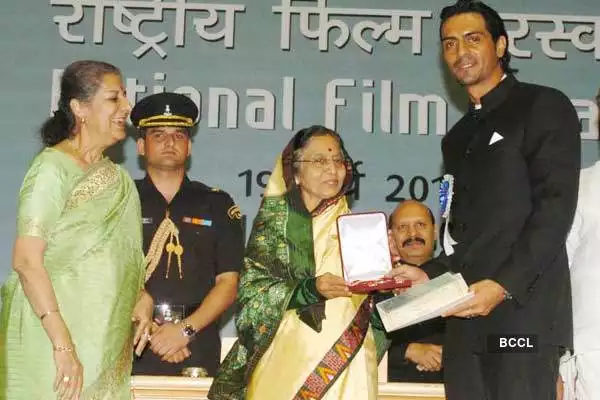
In 2008, Arjun Rampal’s National Award win for Best Supporting Actor for the film Rock On!! cast a spotlight on the contrast between popular appeal and artistic depth. The film struck chords with audiences, but questions lingered whether Arjun Rampal’s performance truly carried the weight that National Awards signify.
While Arjun Rampal did a decent job, Naseeruddin Shah’s portrayal in A Wednesday! exemplified an alternative route to excellence—one driven by potent storytelling and thought-provoking themes.
Arjun Rampal’s triumph prompted discussions about the diversity of performances that National Awards could potentially celebrate and whether Rock On!! truly exemplified the pinnacle of his craft.
Also Read: Indian Musical Dramas That You Can’t Miss!
5. Karisma Kapoor for Dil To Pagal Hai: A Dance to Remember, a Win to Reconsider
The year 1997 witnessed Karisma Kapoor receiving the National Award for Best Supporting Actress for her role in Dil To Pagal Hai. While the film was a musical extravaganza, some critics questioned whether the award primarily acknowledged its commercial success.
Manisha Koirala’s portrayal in Khamoshi: The Musical, a role laden with emotional nuances and quiet strength, emerged as a contender that arguably offered a more profound exploration of the human experience. Kapoor’s win brought to the fore discussions about the criteria that define excellence and whether popular sentiment should play a role in National Award decisions.
Conclusion
Many of these wins make me question the purpose of awards- do they celebrate talent or carry out a specific agenda? While there have been many wins that were truly deserved, the genuineness sure takes a dip once in a while. The landscape of Indian cinema is as varied as the emotions it evokes, and the National Awards encapsulate this diversity. While these instances have drawn attention, they represent just a fraction of the awards’ storied history.
The 69th National Awards have added new chapters to this legacy, inviting us to witness how cinema continues to evolve. As we discuss these moments, it’s crucial to remember that an actor’s journey is a tapestry woven with myriad roles—some celebrated, some less so. These choices, however debated, contribute to the ongoing dialogue about what it means to excel in the world of cinema.

I can’t stop talking about films, so I blog!
I started The FourthWall, my film blog, to share my thoughts on films and shows with fellow movie buffs, and over the years it has become my happy place. Come join in for some interesting conversations on cinema… and sometimes books and fashion!

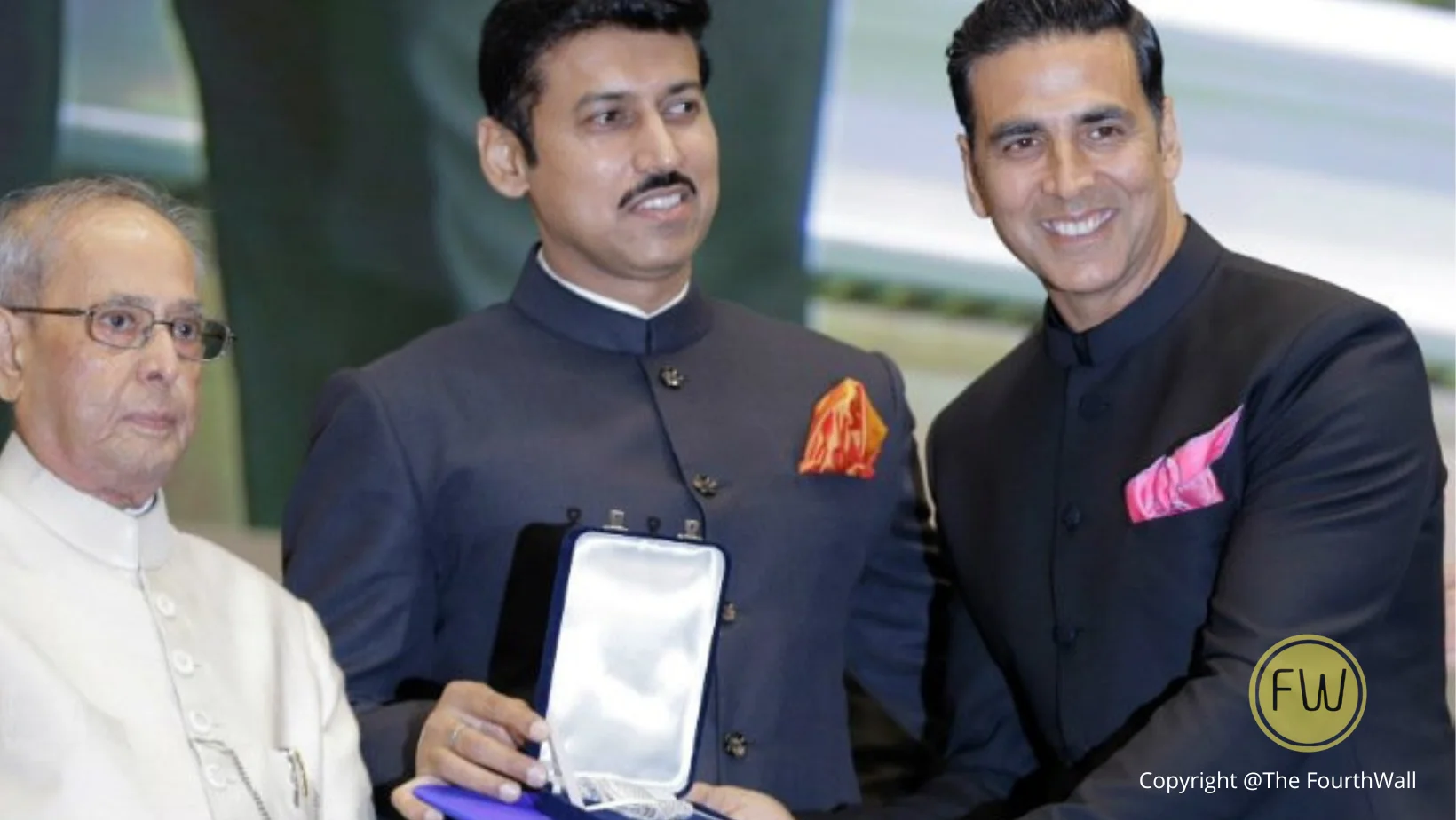




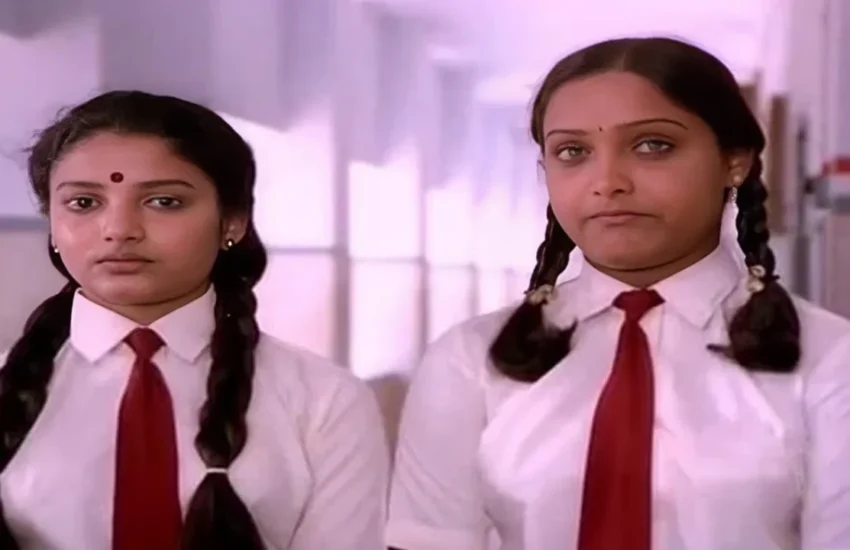


Was thinking it was only a once in while phenomena ,Thank you for making the Matrix visible 🙂